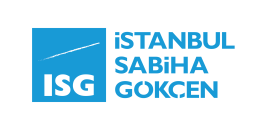COVID-19 “will dictate the practice of social distancing, better hygiene at airports, and technology-driven passenger processing”
Gerald Ong, Director, Aviation Marketing, Istanbul Sabiha Gökçen International Airport, discusses the impact of COVID-19 and the airport’s crisis management strategy.
What has been the measurable impact of COVID-19 on Sabiha Gökçen?
Gerald Ong, Director, Aviation Marketing, Istanbul Sabiha Gökçen International Airport: “It has been two months since Sabiha Gökçen was shut down on the night of 28 March. It came after its last domestic flight following the Turkish Government’s announcement to suspend all international flights and restricted inter-city travel. This is the first time in history that the airport has ever been closed and experienced a decrease in traffic. Between March and May, Sabiha Gökçen is expected to lose over 80% of passengers, over seven million passengers, as well as over 45,000 flight movements. Over 95% of its traffic network is concentrated on the Europe, CIS and Middle East regions.”
What disruption/crisis management initiatives have been implemented at Sabiha Gökçen as a result of COVID-19?
Ong: “In such circumstances, similar to other airports, safety is at the top of our agenda during this crisis. Prior to the rise of the outbreak, some quick measures were introduced at the airport, including social distancing within passenger processes – check in, boarding, security checks, hand scanners, increased frequency of cleaning in the common areas of the airport, together with equipment, and disinfecting of crowded areas. We also worked closely with airlines and stakeholders to disseminate the right information with regards to flight cancellation, which happened at short notice.”
How is Sabiha Gökçen supporting airlines?
Ong: “Following flight cancellations and the airport’s closure, we have been maintaining close communication with airlines with regard to when they’ll restart operating. Within this context, we are reassessing the available marketing support that we can provide in terms of sustaining some of the key routes upon restart. We are also engaging with relevant authorities and the government for support.”
In terms of knowledge-sharing, what can other airports learn from the experience at Sabiha Gökçen and how you have responded to the COVID-19 crisis?
Ong: “What happened was something that we did not see coming, especially since the strong growth that the airport has achieved since the new terminal opened in 2009. Before this, Sabiha Gökçen was resilient despite the global economic downturn in 2009-2010, Russian crisis end of 2015, failed military coup, and terrorism in Turkey in 2016. Following these incidents, we were able to rebound within 1-2 years.
“While these events were not of the scale of COVID-19, they have taught us about manoeuvring in such situations. It’s easier to look at the worst cases, but at the same time, there’s also light at the end of tunnel.
“Being a busy terminal and operating on a single runway, we saw this as a window of opportunity for us to carry out the full rehabilitation and refurbishment of the runway and apron facilities. Until now, only minor works were able to be completed before midnight/after daily runway temporary closure. We were also able to speed-up the construction and completion of additional check-in islands in the terminal. The time taken for all these initiatives would have been much longer if the airport had been open and therefore busy.”
What insights can you share about what you expect to happen next?
Ong: “This incident is unprecedented, but nevertheless has a very significant global impact beyond just aviation. It may take another 6-12 months to gradually build-up, which is also dependent on the availability of a vaccine.
“Moving forward, coronavirus will change the landscape of the industry. It will dictate the practice of social distancing, better hygiene at airports, technology-driven passenger processing, and so on. But one thing that won’t change much is that travelling remains a necessity, especially for business purposes. Therefore, it’s only a matter of time before travel picks up and recovers back to the level in 2019.”
To read the full article, please visit: http://www.airport-business.com/2020/05/istanbul-sabiha-gokcen-covid-19-will-dictate-practice-social-distancing-better-hygiene-airports-technology-driven-passenger-processing/


